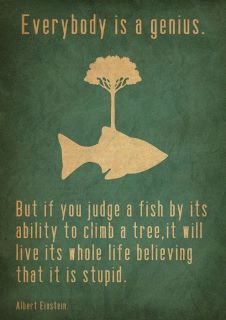Our children have innate strengths that we can cultivate if we are perceptive enough to identify those gifts. With a good-nature child, we delight in the happiness the little one gives us and others. On the other hand, an energetic child can swiftly bring out stern adult control rather than celebration about that child’s vigor! We can reveal what sets each child apart, including using play therapy to discover a child’s innate gifts.
Parents, teachers, and counselors strive to identify deficits and weaknesses in youth, not so we can tear children down, but so we can facilitate (and usually try to expedite!) personal growth. But to then enable social and emotional development, identifying and focusing on a child’s individual strengths is paramount.
 Pinpointing strengths is not an easy undertaking. If one does not sing well enough to win a talent contest, gifts are frequently left unnoticed. When pressed to list strengths, we typically come up with adjectives such as nice or funny.
Pinpointing strengths is not an easy undertaking. If one does not sing well enough to win a talent contest, gifts are frequently left unnoticed. When pressed to list strengths, we typically come up with adjectives such as nice or funny.
One Labor Day, my friend Enoch Hendry asked, “What do you do? Not where do you work, but what do you do?” I thought long and hard about my life’s work before accepting my awareness: I am sensitive to others’ needs and try to compassionately and energetically address them.
Enoch goes to lunch with people so he can connect and hear details about their lives. (Of course, he gets to eat lunch too.)
My husband is a problem-solver who listens and observes intently before eventually divulging a well-designed plan of action.
My 89-year old mother Lois still generously giggles joy.
Truly discovering the essence of a child’s gifts takes development of a genuine relationship with that child. In my office play therapy room, a girl’s timidity and full presence in the moment brings me clearly in focus. A male child patiently figures out how to build a robot using pipe cleaners; we then problem-solve how to study multiplication without getting frustrated. A 10-year old misses his first 8 basketball shots but perseveres with no discouragement. At school, a student gets mad about her performance on her spelling test because she does care about her grades.
Identifying the true strengths of a child may necessitate talking over lunch or playing a game together. It usually requires sensitivity, compassion and energy to find those gifts and then problem-solve how to use the strengths to overcome weaknesses. But, oh, the generous and joyful giggles in the end are so worth the work!
Originally posted 2015-09-02 06:52:22. Republished by Blog Post Promoter
